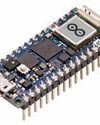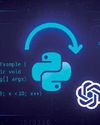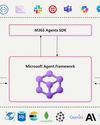يحاول ذهب - حر
How to Write Code Better: Some Best Practices
August 2023
|Open Source For You
In today’s digital age, a well performing app is paramount to the success of any business. Writing code is an essential part of developing any modern application, and it is crucial to ensure that the code you write is structured, optimised and efficient. Poorly written code can have significant consequences such as slow loading times, crashes, and even user frustration.

As the performance of any app highly depends on how well the code is written, adopting best practices is essential to ensure that the app runs smoothly, loads faster, and provides an excellent user experience. Whether you are a seasoned developer or just starting to code, the best practices outlined in this article will help you to improve your coding skills and become a better app developer.
Purpose of implementing coding standards
The purpose of having coding standards is to ensure that code is written in a consistent and maintainable manner, allowing for easier collaboration among team members and reducing the likelihood of errors and bugs. Coding standards also aid code reusability, simplify debugging, and improve application performance. They ensure that code is written with clarity, readability, and standardisation, making it more comprehensible for future development and maintenance. Additionally, these standards facilitate code reviews, reduce development time, and enforce good programming practices.
Reasons for writing clean and efficient code for apps
Readability: Clean code is easy to read and understand. When the code is clean, other developers can quickly understand its purpose and easily maintain it in the future. Clean code also makes it easier for developers to identify and fix errors faster.
Maintenance: Writing clean code reduces the time it takes to maintain the application. An application that uses clean code is more likely to be error-free and easier to maintain in the long run, which can save developers a lot of time and resources.
Scalability:
هذه القصة من طبعة August 2023 من Open Source For You.
اشترك في Magzter GOLD للوصول إلى آلاف القصص المتميزة المنسقة، وأكثر من 9000 مجلة وصحيفة.
هل أنت مشترك بالفعل؟ تسجيل الدخول
المزيد من القصص من Open Source For You

Open Source For You
Lux: Excellence in Data Analysis and Visualisation
Data is sacred in today's world, and Python libraries like Lux make data analysis and visualisation so much easier.
2 mins
January 2026

Open Source For You
The Role of Open Source in Building Modern Data Infrastructure
It's no secret that open source is emerging as the backbone of modern data infrastructure. Here’s a list of the core open source technologies used to deploy this infrastructure, along with some real-world examples and a brief on why open source matters.
3 mins
December 2025

Open Source For You
The Whispering Machines: How Open Source is Bringing Intelligence to the Tiniest Devices
Built on open source frameworks, TinyML is enabling complex machine learning models to run on the microcontrollers embedded in connected devices, bringing artificial intelligence to the very edge of the network.
3 mins
December 2025

Open Source For You
Setting Up Snort to Secure Your Network
Snort is a popular, open source intrusion detection system that monitors traffic in real time to detect malware. Here’s a detailed explanation of how to set it up on Ubuntu and test it by generating traffic from another system.
7 mins
December 2025

Open Source For You
When AI Meets DevOps to Build Self-Healing Systems
Traditional DevOps, with its rule-based automation, is struggling to work effectively in today’s complex tech world. But when combined with AlOps, it can lead to IT systems that predict failures and solve issues without human intervention.
7 mins
December 2025

Open Source For You
How to Automate Java Code Modernisation
This short guide illustrates that automating Java code modernisation with Python and OpenAI API is not just possible-it's remarkably effective.
5 mins
December 2025

Open Source For You
The Quest to Build a Quantum Computer
The road to large-scale quantum computing is long and hard, with incremental advances paving the way. But the destination is in sight.
12 mins
December 2025

Open Source For You
Job Opportunities: What's Hot in the Cloud Space?
If there's one field that refuses to slow down, it's cloud computing. Even as automation and AI reshape roles, cloud adoption continues to surge. From startups deploying microservices overnight to enterprises migrating decades of legacy systems, cloud remains the engine of digital transformation. For professionals, this means one thing: skills that live in the cloud won't come down anytime soon.
2 mins
December 2025

Open Source For You
Securing Client Identity with Post-Quantum Cryptography
Here's a quick tutorial on how to build a secure, real world client-server model that establishes client identity by using CRYSTALS-Dilithium, a post-quantum cryptography algorithm.
3 mins
December 2025

Open Source For You
Unlocking the Power of Multi-Agent Solutions with the Microsoft Agentic Framework
The Microsoft Agentic Framework is rapidly emerging as a cornerstone for developers, architects, and technology leaders seeking to build dynamic, intelligent systems powered by multiple collaborating agents. In an era where automation, distributed intelligence, and adaptive software are increasingly vital, this framework offers robust tools and features to accelerate the design and deployment of agent-based solutions.
6 mins
December 2025
Translate
Change font size

